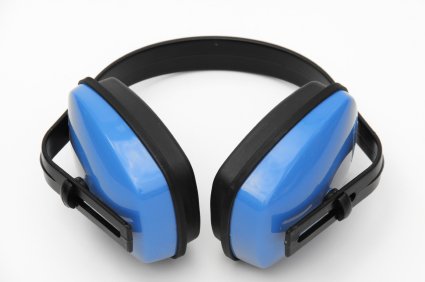Part of the charm and awe surrounding Christmas is in enjoying the sounds, smells, and sights found only during the holidays. When you have tinnitus, taking in the sounds can be difficult. But with a little preparation and creativity, the entire holiday experience can still be as enjoyable and unique as ever! Here are some simple ways to manage your tinnitus this holiday season.
1. Feed your inner ear
While every patient is different, there are common foods that typically exacerbate tinnitus: salty foods, sugary foods, and foods with artificial sweeteners. If it’s impossible to avoid them altogether, introduce these foods one by one, so you can study how each food affects your symptoms. By contrast, it’s reported that carbohydrate-rich foods can temporarily relieve tinnitus symptoms. Before you run to the pasta bar, think twice: empty carbohydrates like breads, pastas, and white rice can suppress your immune system. Instead, opt for healthier substitutes, such as mashed sweet potatoes rather than regular mashed potatoes; yam fries instead of regular french fries; brown rice versus white rice.
2. Avoid holiday madness:
There is a lot of anecdotal evidence suggesting that stress reduction can relieve symptoms of tinnitus. When your body is stressed, it sets itself into a sort of emergency mode, where the body shifts its focus away from a restoration and repair stage and towards more crucial functions in the body like breathing and regulating metabolism. With conditions like tinnitus, it’s important to stay in the restoration and repair stage, because this is when the body is best able to adapt to and deal with the challenges of tinnitus. Shop online instead of battling crowds at malls; give yourself a massage or a weekend getaway trip as a Christmas gift to yourself; avoid commuting during rush hours. No matter the strategy, it’s important that you remind yourself to remain cool and collected– no one likes a grinch!
3. Minimize exposure to loud noises:

With tinnitus, you tend to be more sensitive to sound. If the clanging of silverware and china is too much, you might want to skip big dinner parties, or make arrangements to come in time for dessert when everyone’s more sedated from the food. Consider throwing your own New Years’ Eve soiree for a small group of friends or family, where you can set the mood for a more subdued atmosphere. If you can, invest in earplugs that block out only the loudest noises in the room while allowing all other sound to get through.
4. Nix alcoholic and caffeinated drinks:
In addition to the food triggers mentioned in #1, these are two common drinks known to exacerbate tinnitus. Drinking these, especially at night, can disturb sleep patterns, which are already compromised in many tinnitus patients. The great news is that most alcoholic and caffeinated beverages have alcohol-free and caffeine-free counterparts, so don’t worry, you don’t have to be the only adult raiding the children’s juice bar at the party.
5. Be a busy bee:
It’s common for people with tinnitus, or any condition for that matter, to be a bit blue over the holidays. The best way to combat any negative thoughts is to stay busy. Engaging in your favorite holiday activities allows you to “get lost” in it, lending a healthy distraction away from– and perhaps even provide a better perspective on– your situation. Whether it’s wrapping presents while watching your favorite Christmas films, making gingerbread houses with friends while listening to an old Christmas album, or arranging poinsettias for the garden, being “caught up” in enjoyable activities is sure to boost your mood and add holiday cheer.
6. Get plenty of rest. Holiday or not,
Tinnitus patients have a hard enough time sleeping. Even silence can seem deafening to them. Compounded with the rush of holidays, especially with last-minute preparations for gifts and parties, sticking to a regular sleep schedule may be challenging. Avoid consuming food and drink that can interrupt sleep, like alcohol and caffeine. Don’t exercise or eat too close to bedtime, as they can throw off your circadian rhythm (your internal clock that regulates your sleep cycle). Use heavy drapes to block out the Christmas lights that light up the neighborhood, and avoid using electronic devices just before bed. They emit blue light, which has been shown to disrupt levels of melatonin, the hormone we need to prepare our bodies to sleep.
7. Update your Christmas playlist:
Traditional Christmas music often has a distinctive sound, characterized by tambourines and bells– not exactly the easiest on the ears. But just because you find certain sounds uncomfortable, it doesn’t mean you have to give up your favorite tunes. Search for Christmas albums in different genres, be it Jazz or Electronica (trust us, there’s plenty of them!), and surround yourself with more soothing sounds. When Christmas music gets to be redundant, change it up with more ambient sounds, like those found in nature: ocean waves, babbling brooks, jungle sounds. Keep a music player handy, so that you can find relief if needed when the sounds at work or the grocery store become too annoying.
Leave a Reply